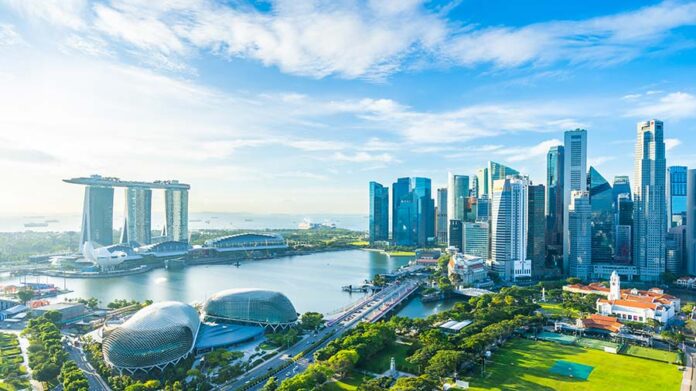Singapore transformed into a thriving economy through key sectors like manufacturing, services, and ICT. 2024 GDP growth forecast is now 2.4%, reflecting economic resilience and adaptability.
Transformative Journey of Singapore
Over the past five decades, Singapore has evolved from an economy plagued by unemployment and poor infrastructure into a model of economic success. This transformation is attributed to strategic growth in key sectors like manufacturing, services, and ICT, alongside the burgeoning fields of e-commerce and logistics. As a result, Singapore is now a vibrant economy capable of competing against larger global players. Its achievements in industrialization and economic development are an inspiration, showcasing the country’s ability to adapt and innovate continually.
Drivers of Economic Growth
Forecasting Singapore’s economic trajectory involves examining its primary growth drivers. Established sectors and emerging fields in agritech, medtech, sustainability, and clean energy contribute to its diversified economy. The workforce, composed of local talents and approximately 36 percent foreign professionals, enhances its competitive edge. The Government of Singapore has revised its 2024 GDP growth forecast to 2.4 percent, demonstrating robust confidence in the country’s resilience and adaptability in an evolving global economy.
Singapore’s economic outlook over the next five years is poised to be shaped by a blend of resilience and adaptability amidst global uncertainties. The city-state, known for its strategic trade position and robust financial services sector, is expected to continue leveraging its strengths while embracing new strategies for sustainable growth. Key to this outlook is the continued transformation towards a digital and innovation-driven economy. With initiatives such as the Smart Nation and the Research, Innovation and Enterprise 2025 plan, Singapore aims to position itself as a global hub for technology and innovation. By fostering growth in sectors like artificial intelligence, cybersecurity, and fintech, the country seeks to capture emerging opportunities in the digital economy.
Manufacturing, traditionally a significant pillar of Singapore’s economy, is expected to evolve with a focus on advanced manufacturing and high-value industries such as biotechnology and precision engineering. This shift is supported by government investment in skills development and infrastructure enhancements, ensuring that the workforce remains equipped to meet the demands of new industries. Meanwhile, Singapore’s role as an international financial center is anticipated to be reinforced by its stable political environment and progressive regulatory framework. Initiatives to enhance digital banking and capitalize on green financing align with global trends towards sustainability and technological integration, promising steady growth in this sector.
In the wake of the COVID-19 pandemic, Singapore’s commitment to sustainability and resilience is more pronounced. The Green Plan 2030 outlines ambitious goals for sustainable development, influencing sectors like energy, transport, and urban planning. These efforts are expected to create new avenues for investment and growth. Despite global economic headwinds such as potential geopolitical tensions and inflationary pressures, Singapore’s diversified economy and proactive policymaking provide a solid foundation. Challenges remain, including addressing income inequality and maintaining competitiveness, but Singapore’s agile economic strategies and capacity for innovation position it well for steady progress in the coming years.
Source : Singapore’s Economic Outlook Over the Next Five Years


